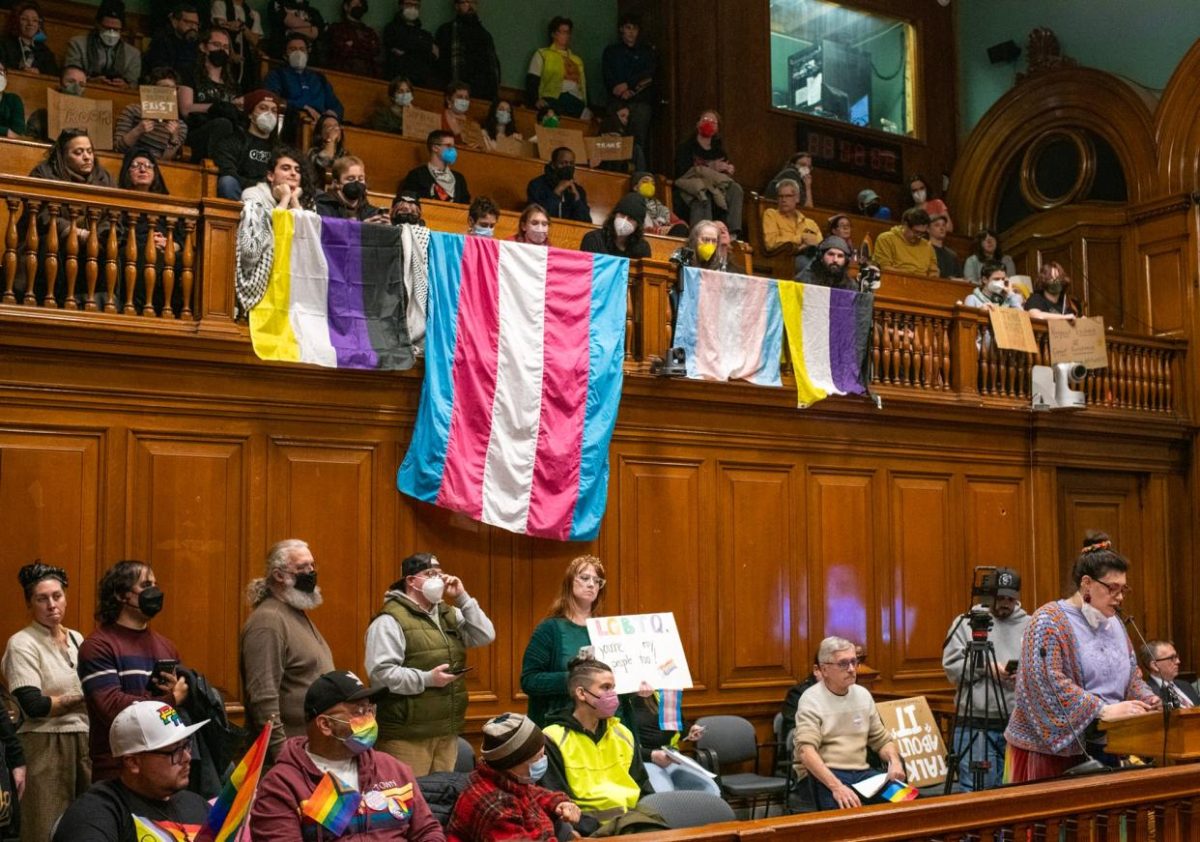Content warning: this article discusses police brutality and sexual violence
The U.S. Department of Justice (DOJ) released the findings of a year-long investigation into the Worcester Police Department (WPD) and the City of Worcester on December 9. The report details a pattern of misconduct and civil rights violations that disproportionately affect Worcester’s Black and Hispanic communities.
In their findings report, the DOJ stated that it “has reasonable cause to believe that WPD… engages in a pattern or practice of using excessive force” and went on to assert that WPD “unreasonably” stuns civilians with tasers and hits people “in the head or face.” This includes those with “behavioral health disabilities” or people experiencing behavioral and/or mental health crises.
The report asserts that officers resort to such acts when only minor crimes, or no crimes, have been committed.
Alongside the findings of excessive use of force, the DOJ said that they found the WPD has a pattern of escalating minor incidents with force, as well as using police dogs to inflict disproportionate amounts of harm compared to the amount of danger or resistance the officers face.
On the topic of excessive force and escalation of incidents, the DOJ concluded that the WPD “inadequately supervises officers’ use of force,” and that “supervisors sometimes fail to identify problems that are clear on the face of officers’ reports.”
The DOJ said in their report that they also found credible reports of officers engaging in acts of sexual violence. In the document, the DOJ reported that multiple women alleged that WPD officers had engaged in unwanted sexual contact while undercover.
The women allege that this non-consensual sexual activity occurred while the women were in WPD custody, or under threat/duress. In several instances, WPD officers are alleged to have first engaged in sexual contact with women before arresting them for engaging in prostitution. “There is no legitimate governmental basis for any sexual contact by WPD officers who are enforcing these [anti-prostitution] laws,” the report says.
In other instances, the DOJ said that they found that WPD officers had used their positions as law enforcement officers to threaten, coerce, and manipulate victims into sexual contact.
One alleged incident involved a WPD officer threatening to arrest a woman on drug charges if she did not provide oral sex to the officer. In the same incident, the officer “flash[ed] his gun,” potentially threatening harm to the woman if she did not comply with his demands. The woman told the DOJ that “she wanted to jump out of the car,” but “felt she had no choice but to submit to the officer’s demands.”
The report describes several other similar instances of WPD officers engaging in sexual violence.
The DOJ report also asserts that there is a lack of action by WPD’s internal affairs unit, the Bureau of Professional Standards (BOPS). The DOJ found that BOPS had closed several credible complaints without properly investigating, and that the WPD had “[been] on notice of these concerns and reports of officer sexual misconduct,” but “did not undertake any meaningful efforts to investigate allegations of sexual misconduct or assess the severity of the problem.”
Outside of sexual violence perpetrated by officers, the DOJ also found that WPD lacks “appropriate policies and practices to address reports of sexual assault.” They raised concerns about the quality of the WPD’s investigations into allegations of sexual violence.
Similar to their investigations into alleged officer misconduct, the DOJ found that WPD detectives closed cases without properly and thoroughly investigating.
The DOJ concluded the report with assessing the possible causes of violations, and asserted that the main causes are the WPD failing to hold officers accountable and a lack of stringent policies and training concerning officer behavior.
The Worcester Police Department has yet to release a statement concerning the DOJ’s findings.


Donna ~ Jan 3, 2025 at 8:10 pm
I wonder if you could use the words “sexual violence” any more times in this article.